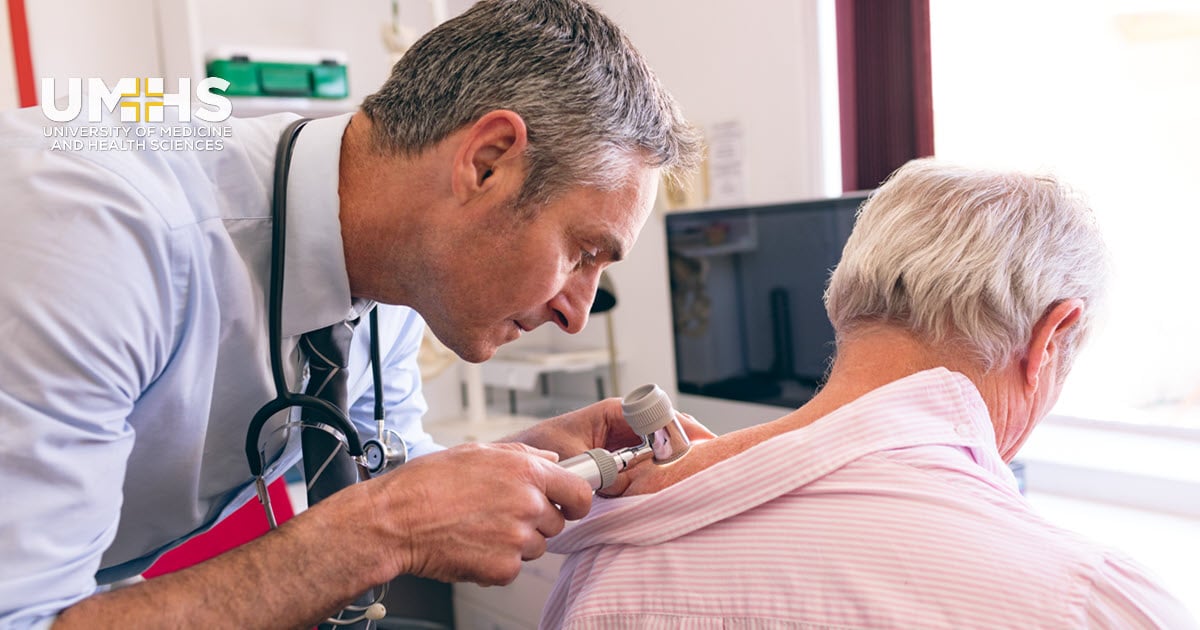Chromaderm Melbourne: Premier Dermatology Clinic for All Your Skin Requirements
Wiki Article
Exploring the Function of Skin Doctors in Diagnosing and Treating Diverse Skin Problem With Accuracy
From common issues like acne and dermatitis to much more complicated conditions such as cancer malignancy or unusual hereditary skin diseases, skin doctors are at the center of identifying and treating these problems with precision. Beyond the surface area of skin conditions exist interconnected aspects that influence medical diagnosis and therapy end results.Value of Very Early Discovery
Very early discovery of skin conditions plays a critical role in the effective therapy and monitoring by skin specialists. Prompt identification of skin problems permits for prompt intervention, which can avoid the development of conditions and minimize potential issues. Skin specialists depend on their proficiency to identify refined modifications in the skin that may indicate underlying troubles, such as skin cancer, dermatitis, dermatitis, or psoriasis. By conducting extensive examinations and making use of diagnostic devices like biopsies or dermoscopy, dermatologists can accurately diagnose a vast array of skin problem.In addition, very early detection enables skin doctors to tailor therapy strategies to the details demands of each person. As an example, finding skin cancer cells in its onset considerably boosts the diagnosis and increases the chance of effective treatment end results. By intervening early, dermatologists can likewise help ease symptoms, prevent worsening of the problem, and improve the total lifestyle for their individuals. As a result, highlighting the relevance of early discovery underscores the critical function that dermatologists play in promoting skin wellness and well-being.
Advanced Diagnostic Techniques
Making use of modern innovation and specific proficiency, skin specialists use sophisticated analysis techniques to properly identify and evaluate numerous skin problems. By amplifying the skin, dermoscopy aids in the early detection of cancer malignancy, basal cell carcinoma, and various other skin cancers.Additionally, molecular testing has revolutionized the diagnosis and therapy of skin diseases by enabling skin specialists to examine genetic anomalies connected with conditions such as melanoma and genetic dermatoses. With methods like polymerase chain reaction (PCR) and next-generation sequencing (NGS), skin specialists can provide individualized therapy strategies based on a patient's certain hereditary account. These advanced diagnostic tools improve the precision and efficiency of dermatological care, ultimately resulting in far better results for clients.

Tailored Treatment Techniques
With a thorough understanding of skin problems accomplished with innovative diagnostic techniques, dermatologists customize treatment techniques to deal with individual person requires efficiently. This personalized method is essential in making certain optimal end results for clients with diverse skin disease. By considering factors such as skin kind, medical background, lifestyle routines, and treatment choices, dermatologists can develop treatment strategies that are particularly tailored to every patient.Tailored treatment approaches may entail a combination of treatments such as topical medications, dental drugs, minimally invasive procedures, or lifestyle adjustments. For circumstances, patients with acne may take advantage of a routine that includes topical retinoids, dental prescription antibiotics, and in-office procedures like chemical Chromaderm peels or laser treatment. On the other hand, people with dermatitis might need a treatment plan focused on gentle skincare regimens, moisturizers, topical corticosteroids, and identifying and staying clear of triggers that exacerbate their problem.

Handling Chronic Skin Disease
Skin specialists play a critical function in establishing long-term management methods for chronic skin problem, guaranteeing reliable care and improved lifestyle for individuals - Chromaderm Melbourne. Managing persistent skin problem calls for an extensive strategy that surpasses simply dealing with signs. Skin doctors are trained to not just diagnose these conditions properly but likewise to develop customized therapy strategies that address the underlying variables and causes adding to the skin problem's persistence
In managing chronic skin disease, skin specialists often employ a mix of therapy modalities tailored per patient's particular requirements. This might consist of topical medications, oral medicines, way of living alterations, and procedural interventions such as laser therapy or phototherapy. Routine follow-up consultations are necessary to keep track of the problem's development, readjust therapy as required, and give ongoing support and education to individuals.
In addition, skin doctors play a pivotal role in empowering patients to take an active role in managing their skin disease. By educating patients about their condition, therapy alternatives, and preventative actions, skin doctors aid people make educated choices and grow healthy skin practices that add to long-term skin wellness and total health.
Collaborative Treatment Methods
In the alternative management of skin conditions, joint treatment techniques involving various medical care specialists are vital for enhancing patient end results. Skin doctors typically work in multidisciplinary groups to supply extensive care that resolves the diverse needs of people with skin problem. By collaborating with health care physicians, specialists, plastic specialists, and other professionals, skin specialists can ensure that individuals receive incorporated and collaborated treatment tailored to their details condition.Joint care approaches likewise encompass individual education and support. Skin doctors can work very closely with psycho therapists, pharmacists, and registered nurses to enlighten clients concerning their skin condition, treatment alternatives, and preventive steps. This interdisciplinary strategy empowers clients to proactively take part in their care and make notified choices concerning their health.
Moreover, collaborative treatment enables a more holistic evaluation of individuals, thinking about not only the physical symptoms of their skin condition however additionally the emotional and social impact it may have. By thinking about the wider effects of skin problems, medical care specialists can establish a lot more tailored therapy plans that attend to the distinct needs of each client. Eventually, joint treatment methods play a crucial role in delivering premium, patient-centered take care of individuals with diverse skin problem.
Conclusion
In final thought, dermatologists play a critical function in diagnosing and dealing with a broad array of skin conditions with accuracy. By handling persistent skin conditions and applying collective treatment techniques, dermatologists make sure effective and detailed care for their individuals.Dermatologists depend on their expertise to acknowledge refined modifications in the skin that might suggest underlying problems, such as skin cancer cells, psoriasis, dermatitis, or dermatitis. By multiplying the skin, dermoscopy aids in the early discovery of melanoma, basal cell cancer, and various other skin cancers.With an extensive understanding of skin problems attained through sophisticated analysis techniques, skin specialists customize therapy approaches to deal with private person requires effectively. Skin specialists are educated to not just detect these conditions accurately however likewise to develop personalized treatment plans that deal with the underlying reasons and aspects contributing to the skin condition's persistence.
In managing chronic skin conditions, skin specialists commonly use a mix of therapy methods customized to each person's details demands.
Report this wiki page